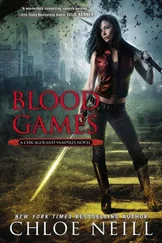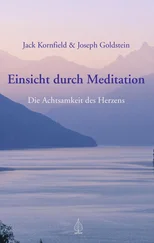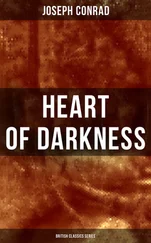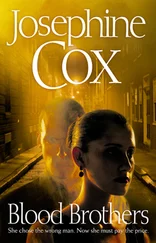1 ...7 8 9 11 12 13 ...85 In the event, Joseph did authorize Lina (Caroline) to go to London and take a bilingual secretarial course at a college in Dunraven Street, in Mayfair. My mother lived in The Boltons, a splendid address in South Kensington, in a hostel overshadowed by the mansion of Douglas Fairbanks Junior. In the mornings she would walk across Hyde Park to her college. She found London, with its stupendous fogs and polite, pin-striped pedestrians, strange and wonderful. She made friends, among them the about-to-be-famous model Jean Shrimpton, ate lunch at Selfridges, improved her English. She was not homesick. To keep in touch with home, she corresponded with her mother. ‘Did your father write to you?’ I asked her. ‘No,’ she said, ‘just my mother. Maman cared for the children — visited us at school, looked after our day-to-day needs. We were part of her domestic domain. My father’s domain was outside the house, at work, at the hotel. I had a very quiet childhood,’ my mother said. ‘I never recall my parents raising their voices at each other.’
My mother’s spell in England — which also included some months spent teaching conversational French at Tolmer’s, an obscure boarding school for girls near St Albans — was the finishing touch on an international upbringing. She attended Turkish primary school, and then, aged seven, went to boarding school in Lyon, where she did not see her parents for the best part of four years. For her secondary education, Lina was transferred to the Ecole Franciscaine in Aleppo, a convent school for girls. Schooling in Aleppo or Beirut was customary for the well-to-do Christian girls of Mersin. Its objective was to produce nice, comme il faut young women who would return home to excite the attentions of the resident young men — the Alberts and the Andrés and the Michels and the Henris — and fall sufficiently in love as to get married. They would speak French (with a distinctive Levantine accent) as their first language and Turkish (also with a distinctive Levantine accent) as their second. Their speech in both tongues would be unidiomatic and relatively unsupple, limitations reinforced by the spectrum of activities awaiting them: cooking expertly; supporting their husbands’ business exploits; bearing and raising children; throwing and going to tea parties and cocktail parties; putting up with the heat in the summer and the boredom in the winter; periodically voyaging to Europe and, once there, shopping — for shoes in Italy, silk scarves in France, chocolates in Switzerland, raincoats in England. My mother was not enthusiastic, when the time came, about leaving London.
However, when she returned in 1960, Mersin, its population grown to sixty-something thousand, was livening up. A new port had been built and all kinds of projects were in progress at the new industrial complex, Ata  . It was at Ata
. It was at Ata  that my mother found work as a secretary with the American construction company, Foster Wheeler. She made a good living and, most importantly, she met her husband.
that my mother found work as a secretary with the American construction company, Foster Wheeler. She made a good living and, most importantly, she met her husband.
The improbability of my parents’ union is of the kind usually associated with being whacked by a rock fallen from outer space. Even leaving geography out of it, Cork boys would appear to have little in common with Mersin girls; and Kevin O’Neill — monolingual, freckled from head to toe, teeth ravaged by blows received from hurling sticks and the negligent interventions of Cork dentists — was, on the surface, pure Cork. He had been sent to Turkey to lay the ground for a project which Chicago Bridge had undertaken, the building of a small oil refinery for Mobil Oil. It was a big job for a young man, particularly one whose only experience abroad was a short time spent in Germany. But my father was energetic and undaunted, and, sustained by the O’Neill trait of easiness and unfathomable confidence, he took to the task and to the town. For the first few months, he stayed at the best hotel in Mersin, the Toros, whose top floor was still under construction and whose owner, Monsieur Dakad, would pass days judicially supervising the works in a chair across the road, his casque coloniale firmly placed on his head. When the time came to adjudicate in the matter of the windows my father had smashed, Monsieur Dakad, although displeased, did not overreact. He heard out my father and then calmly, without reprimand, leaned across his desk and handed over an estimate for the repairs. He never spoke of the incident again — not even a year or so later, when my father again requested a private interview, this time to ask for permission to marry his eldest daughter, Lina.
Over the years there has been a seepage of stories about my parents’ courting days. My father would borrow a car and pick up my mother from her home in Camlibel. Oncle Pierre, still a teenager, would come along to chaperone his older sister. As soon as the car had turned around the corner, Pierre would jump out of the car and my parents would be free to drive where they pleased — along the coast, or up to the blissfully cool yayla (mountain retreat) of Gözne. Overlooked by a ruined castle and laced with streams, Gözne was a gorge dotted with rickety wooden houses that were barely visible in the thick greenery of oak, hawthorn, honeysuckle, myrtle, arbutus, jujube and Judas trees. Other times, Kevin would take Lina for a walk to the beach or along Atatürk Çaddesi, where the pavement was shaded by awnings of vine leaves and bougainvillaea. They were in love. In November 1961, they got engaged.
Joseph Dakad was unhappy about the match. He did not like the idea of his daughter marrying a foreigner and going away overseas. ‘She has only just returned from England,’ he complained to my father. ‘And besides, how do you propose to support her?’ ‘The same way that you’ve done,’ my father said. ‘By working.’ Joseph Dakad was not satisfied. He knew for a fact that his daughter had good values; but how could he be sure this Irishman shared them? What sort of family was he from? ‘I must have a reference,’ he said finally. He wrote to my father’s parish priest in Cork and obtained ground. In February 1962, my parents were married at the Catholic Church in Mersin, after a slight scare: the bride, detained at the coiffeur by a bad hairstyle that required refixing, was one hour late for the wedding. My mother was led up the aisle by her father. She, of course, wore white; he wore an expression of happiness and — it was chilly inside the church — a smart overcoat.

Actually, Joseph’s characteristic nattiness was one of the few things I had always known about him — that, and the fact that he spoke seven languages (five — French, Arabic, Turkish, English and German — very well, and two — Italian and Spanish — well enough); in the Levant, linguistic expertise has always been highly esteemed. When I asked people about him, they mentioned his dapperness straight away, by way of a headline, as though it led right down to the bottom of things. He was very chic in an understated, entirely appropriate way; sometimes he wore pure silk shirts made especially for him in Istanbul. Another headline was that he was not a serious card player. He played for small amounts — a petit jeu . Just about anywhere else this would be a non-story, but in old Mersin so much turned on cards and the fortunes that were won and lost at the tables of the Merchants’ Club. By contrast, Georgette — here, deference would enter the reporter’s voice — played a grand jeu . Stud poker and concain (a kind of gin rummy) were the preferred games, and play went on in the Club until the early hours. The stakes were high. Someone told me that a night of gambling once cost my grandmother an apartment.
Читать дальше
Конец ознакомительного отрывка
Купить книгу
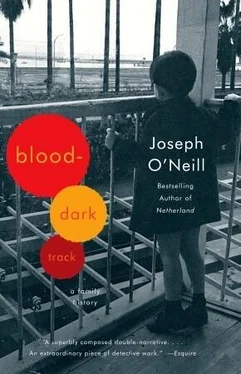
 . It was at Ata
. It was at Ata 




